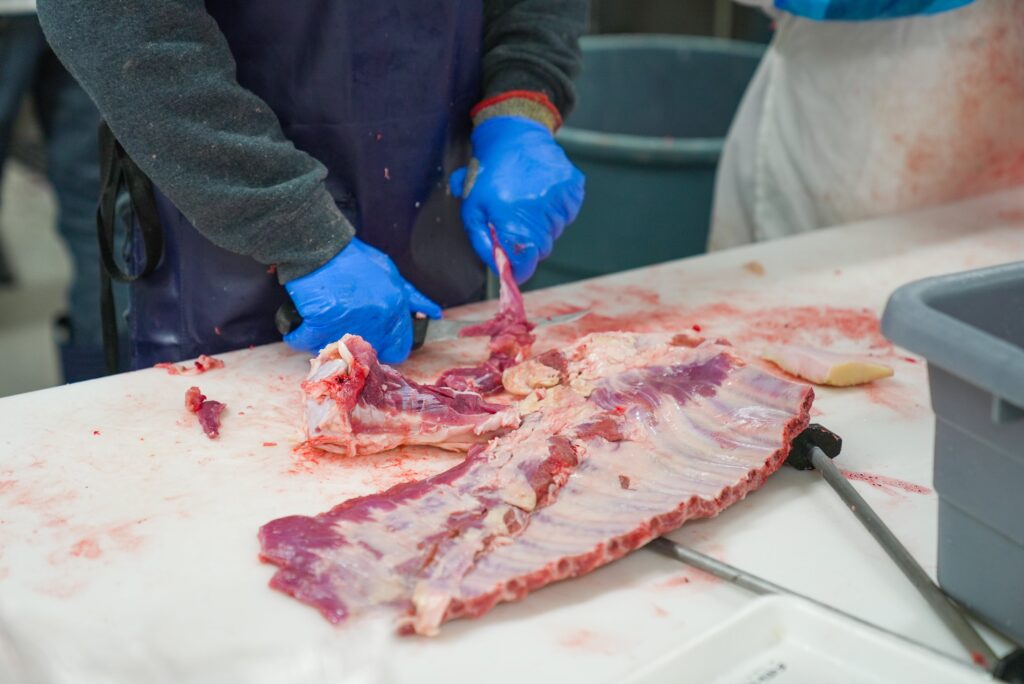The ethical treatment of animals has become a pivotal concern, prompting a collective call for humane slaughtering practices in the food industry. This imperative arises from a profound consideration of the well-being and rights of animals.
The following are the multifaceted reasons why humane slaughtering should be prioritized, exploring the ethical, moral, and practical dimensions that underscore its significance.
Ethical Treatment of Animals
Animals, akin to humans, possess the capacity to experience pain, fear, and distress. Recognizing the intrinsic value of animals, ethical treatment seeks to minimize their suffering during the slaughtering process.
By acknowledging the sentience of animals, we affirm our responsibility to treat them with compassion and respect throughout their journey in the food production chain.
Compassion and Empathy
Humane practices in slaughtering reflect our innate ability to empathize with the pain and suffering of sentient beings. Going beyond mere adherence to regulations, treating animals with compassion becomes an extension of our moral duty to minimize harm.
By embracing empathy, we foster a more compassionate and interconnected world that acknowledges the shared experiences of all living beings.
Welfare Considerations
Humane slaughtering aligns with the fundamental principles of animal welfare. It aspires to ensure that animals are handled and slaughtered in a manner that respects both their physical and psychological well-being.
Prioritizing animal welfare underscores our commitment to providing a dignified and comfortable existence for the animals that contribute to our sustenance.
Minimization of Stress
Stress and fear can exert physiological effects on animals, potentially compromising meat quality and food safety. Humane slaughtering practices are designed to minimize stress, contributing not only to the well-being of the animals but also to the production of higher-quality meat.
This emphasis on minimizing stress aligns with the broader goals of sustainable and responsible meat production.
Cultural and Religious Sensitivity
Across various cultures and religions, rituals and practices are associated with animal slaughter. Promoting humane methods allows for a delicate balance between cultural and religious practices and the ethical treatment of animals.
This recognition of cultural diversity underscores the importance of fostering practices that align with both tradition and ethical considerations.
Public Perception and Consumer Preferences
As public awareness of animal welfare issues continues to grow, consumers are increasingly making ethical choices in their purchases. Producers who prioritize humane slaughtering practices are not only meeting ethical standards but also gaining the trust and support of an informed consumer base.
This shift in consumer preferences further encourages the industry to adopt and uphold humane practices.

Legal and Regulatory Compliance
Many countries have enacted regulations and standards to ensure the humane treatment of animals in the food production industry. Adhering to these standards is not only ethically responsible but also a legal requirement.
Regulatory compliance acts as a safeguard, ensuring that industry practices align with the values of a just and humane society.
Positive Environmental Impact
Reducing stress in animals contributes to a positive environmental impact. Stress and fear in animals can lead to the release of stress hormones, affecting meat quality.
By adopting humane slaughtering practices that prioritize the well-being of animals, we contribute to sustainable and environmentally responsible meat production.
Improvement of Industry Standards
Prioritizing humane slaughtering encourages continuous improvement in industry standards. Ongoing research and innovation in animal handling and stunning methods contribute to the development of more effective and humane practices over time.
This commitment to improvement reflects a dynamic and evolving approach to ensuring the welfare of animals in the food production process.
Social Responsibility
Recognizing the ethical treatment of animals is a manifestation of our commitment to social responsibility. Treating animals humanely is an affirmation of fairness, justice, and the well-being of all living beings.
By acknowledging our shared responsibility for the welfare of animals, we contribute to the creation of a more compassionate and socially responsible society.
The practice of slaughtering animals humanely is not only an ethical and moral imperative but also a practical necessity. It aligns with the values of a compassionate society and signifies a commitment to treating animals with dignity and respect throughout the food production process.
By prioritizing humane practices, we embark on a journey toward a more ethical, sustainable, and interconnected relationship with the animals that contribute to our food supply.

Нi friends, its impreѕsіve article about educationand entirely defined, keep іt
up all the time.
Hi there! Thank you for your kind words! Education is indeed a powerful tool, especially when it comes to fostering compassion and understanding. Your appreciation encourages us to continue shedding light on important topics like humane slaughtering and animal welfare. By prioritizing humane practices, we not only uphold ethical standards but also promote a more compassionate and sustainable approach to how we interact with animals. It’s crucial to recognize the importance of treating all living beings with kindness and respect, and your support motivates us to continue advocating for such principles. Let’s keep spreading awareness and working towards a more compassionate world for both humans and animals alike. Thank you for being part of this journey!